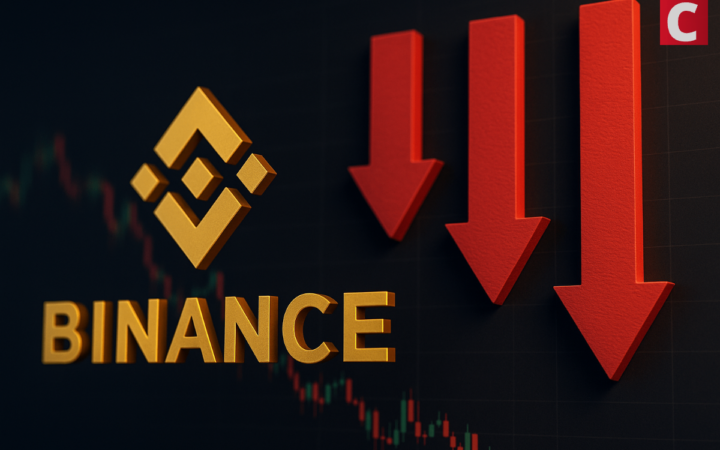What’s the Reason for Choosing a Jurisdiction for Your Company Wisely?
During 2020 and the first half of 2021, more and more countries began taking actions to regulate crypto companies that registered in their jurisdictions or provide services where a major part of clients are from a specific country. The main reason is that the crypto market is flooded by fraudulent firms and hackers that want to plunder your hard-earned funds. We mentioned this in our article about scammers written by Victor Kochetov several days ago.
Countries treat crypto assets oppositely. Some of them, like China, want to get rid of all kinds of companies: mining firms, exchanging and trading platforms, even communities in social networks are banned.
On the other side, we have El Salvador that has implemented Bitcoin as a legal tender currency. In the middle of the pack, we have countries with the strictest regulations like the US, UK, Canada, etc. Looking at this news and uniting experience of communicating with regulators worldwide, I formed a list of the top-5 most loyal and welcome jurisdictions for crypto businesses: Malta (EU), Switzerland, Luxembourg (EU), Estonia (EU), and The Cayman Islands (UK).
The last example of Binance has shown that controllers want the company to work legally or stop providing service. Binance had to create another company that follows US laws and regulation requirements – Binance.US. Now, Binance is under heavy pressure in the UK because it doesn’t have a license from FCA. As a result, companies decided to stop working with it: Clear Junction, Barclays, Santander (UK), and NatWest.
Malta
Top companies: OKEx, Coinvest, Yovo, ICO Launch Malta, Exante, STASIS, Neufund, and many others.
Malta is the number one country in the European Union by simplicity and classification of crypto companies. It produces four classes of licenses. The first class is the simplest license that allows “receive and transfer orders.” The second class allows getting access to virtual financial assets, but doesn’t let a company operate them. The third class allows providing all financial operations excluding exchange. The ultimate license lets a company provide “virtual financial assets, and funding operations plus custody services.”
Switzerland
Top companies: Crypto Finance AG, Loanboox, Neon, Avaloq, Bancor, DIA, BRD, Squirro AG, Taurus Group SA, and others.
According to the Swiss Federal Tax Administration and Swiss Financial Market Supervisory Authority (FINMA), cryptocurrencies are assets. It means they can be bought, sold, invested, exchanged, and so on. We’ve got four types of licenses on the plate. From their name, it’s clear what kind of activities are allowed: Fintech, Exchange, Investment fund, and Banking licenses. This country is quite welcoming for crypto-companies: all financial institutions like FINMA, SBA (Bank Association), government structures open their doors for every startup or already existing company that wants to be well-regulated and work legally. The crypto license requirements are friendly as well: the registration process takes several months (approximately 3-4), the minimum paid capital should be from 100,000 CHF ($109,250), the company must have a director and investor, must have a real physical address within the country, and taxes are: 7% federal and 11-24% canton.
Luxembourg
Top companies: Bitstamp, OceanEx, FundsDLT, Ibisa Network, Peer Mountain, Peculium, and others.
Luxembourg doesn’t treat crypto assets as legal tender. The legal field, laws, and Financial Sector Supervisory Commission (CSSF) welcome crypto companies that want to work with Luxemburg registration. According to the CSSF vision, exchanges services and trading platforms have to obtain a payments institution’s license. It requires companies to proceed with AML/CFT audit obligations. VASPs document clarifies crypto-related definitions for Luxembourg regulators and potential companies’ founders. The registration process takes from 4 to 12 months. The company must be legally registered in Luxembourg. It has to have €15,000-€125,000 capital for running a payment institution and €350,000 for an electronic money institution. Fees can be up to €15,000.
Estonia
Top companies: Alium Finance, Paytomat, Crypterium, CoinLoan, PlasmaPay, CoinMetro, Kick Ecosystem, Stex, Consbit, and others.
Estonia is an EU country that has a welcoming legal environment and such an affordable price for getting a crypto license. This country doesn’t have Malta or Switzerland status, but it is more affordable to get started for small startups. Financial Intelligence Unit (FIU) regulates license processes and can issue audits. Estonia issues two types of licenses for exchange services and crypto-wallets that can be obtained at once within a month. The tax rate for corporations is 20%. There are possibilities to pay as low as 14%.
The Cayman Islands
Top companies: Binance (headquarters), Praxxis, BitMart.
The Cayman Islands Monetary Authority (CIMA) regulates the cryptomarket, providing licensing based on the Virtual Asset Service Providers (VASPs) document. Registering as a VASP allows a company to exchange fiat to crypto and vice versa; exchange virtual assets between themselves; proceed and transfer virtual assets; provide virtual assets custody services; providing other financial services with virtual assets. Working legally from The Cayman Islands has significant pros like tax exemption (a company is allowed to not pay taxes from profits made outside of the Caymans) that lasts 20 years, minimized filing requirements, quick registration within a week, having only one shareholder and one director.
How Does the Regulation Impact the Crypto Industry?
The regulation process is a live stage for all crypto companies that want to be influencial and trustworthy. Many regulators provide the must list of processes that will be consistently checked, and they audit the companies’ activities quite often to be sure that clients’ money is safe. These actions force crypto firms to be well-managed, transparent, and law-abiding.
Disclaimer: Coinspeaker is committed to providing unbiased and transparent reporting. This article aims to deliver accurate and timely information but should not be taken as financial or investment advice. Since market conditions can change rapidly, we encourage you to verify information on your own and consult with a professional before making any decisions based on this content.

Victor is the CEO of Kyrrex Exchange.





